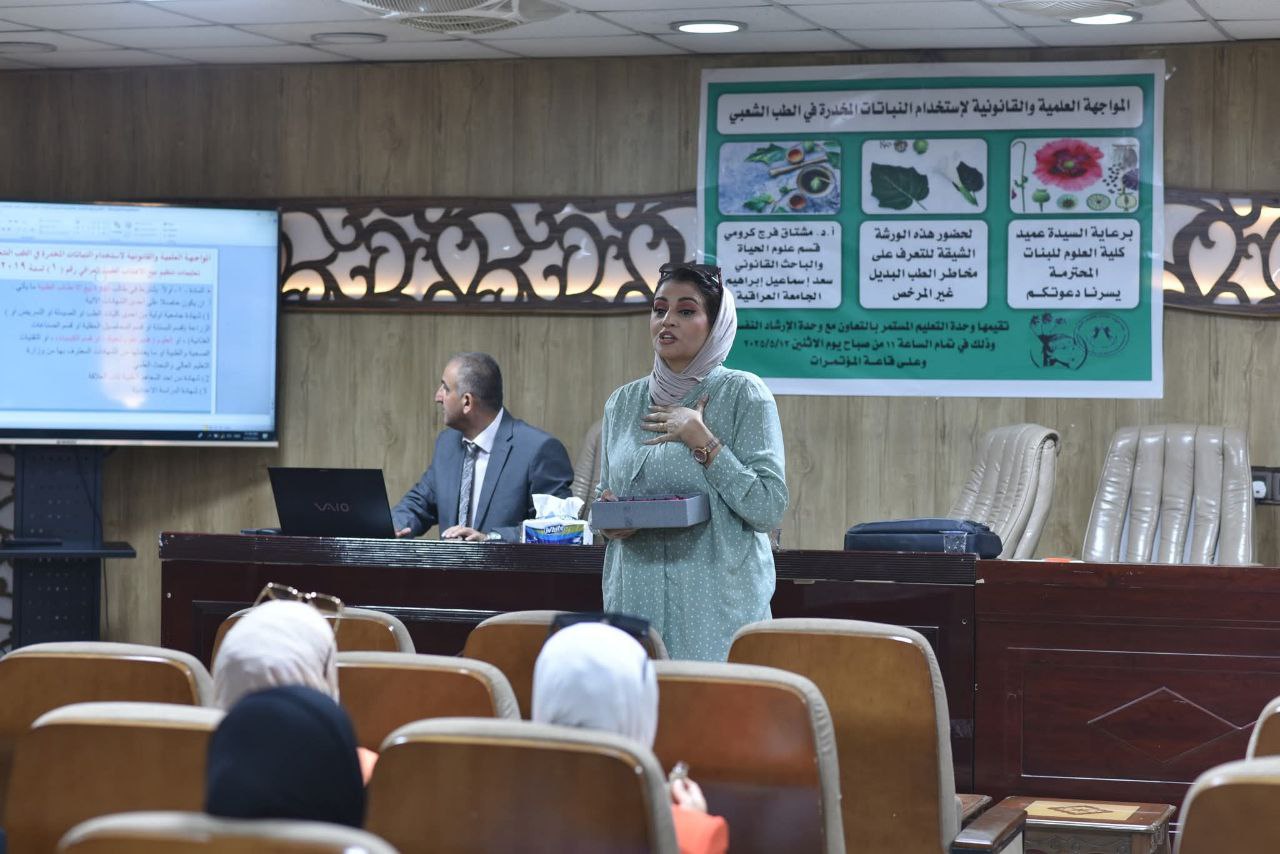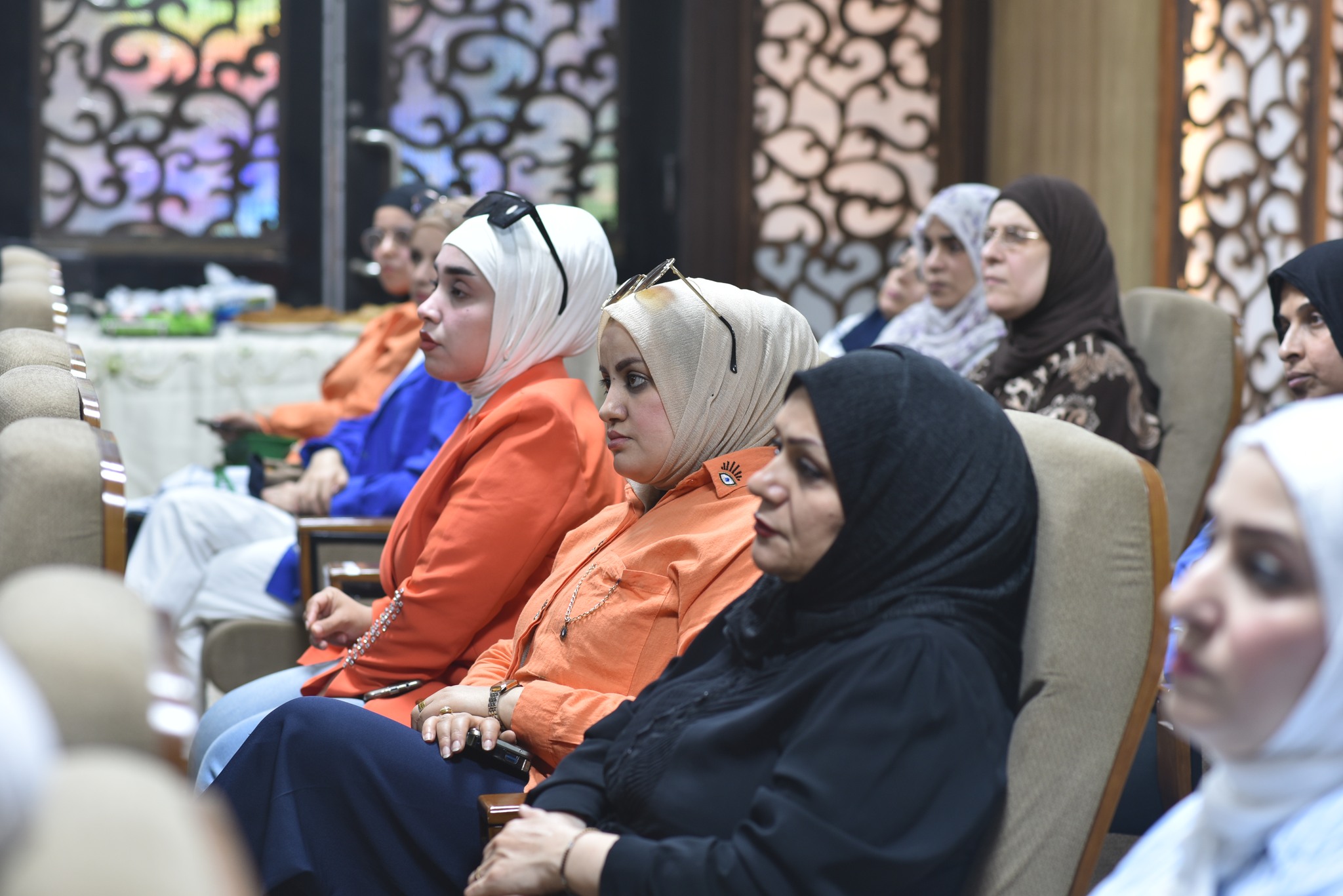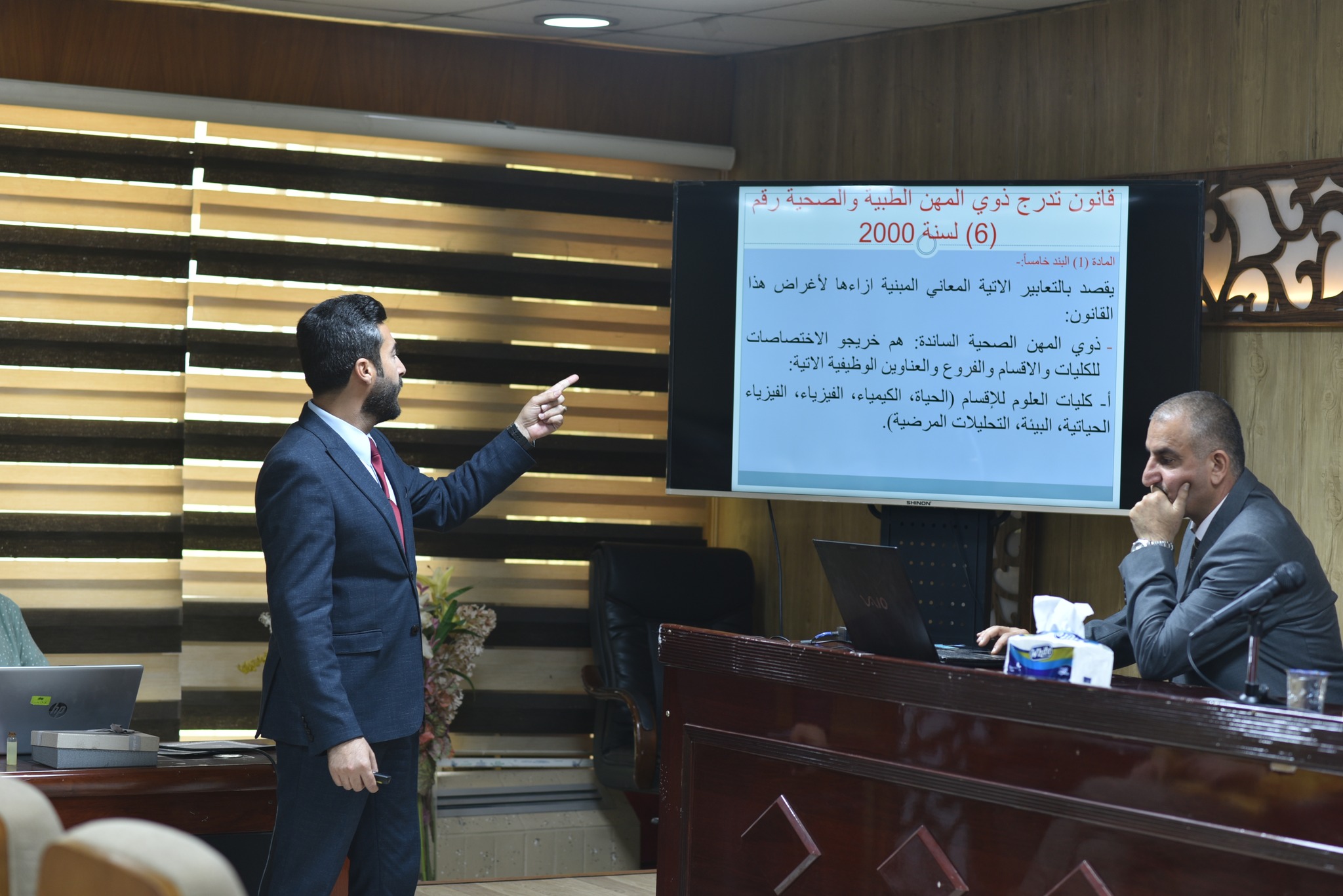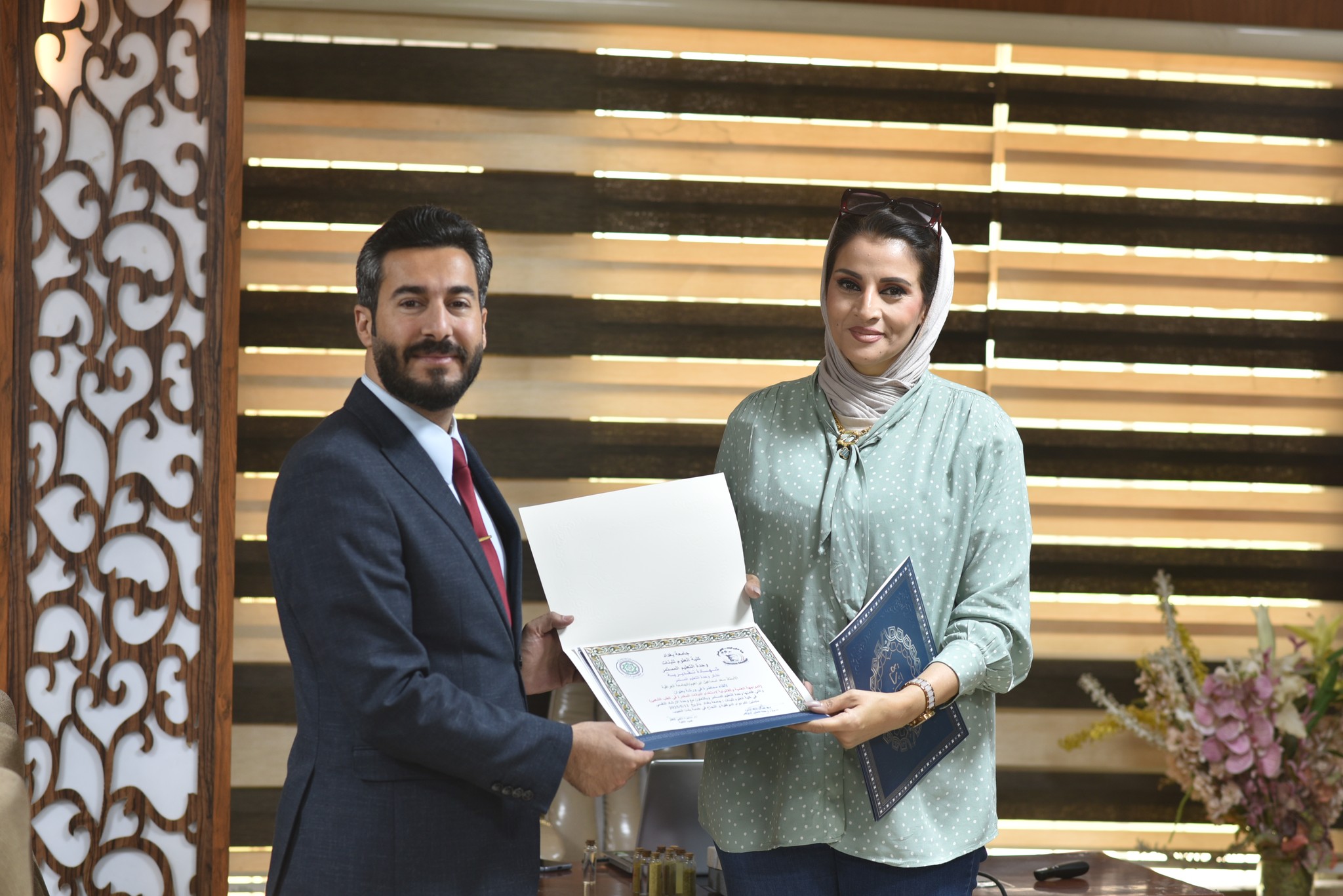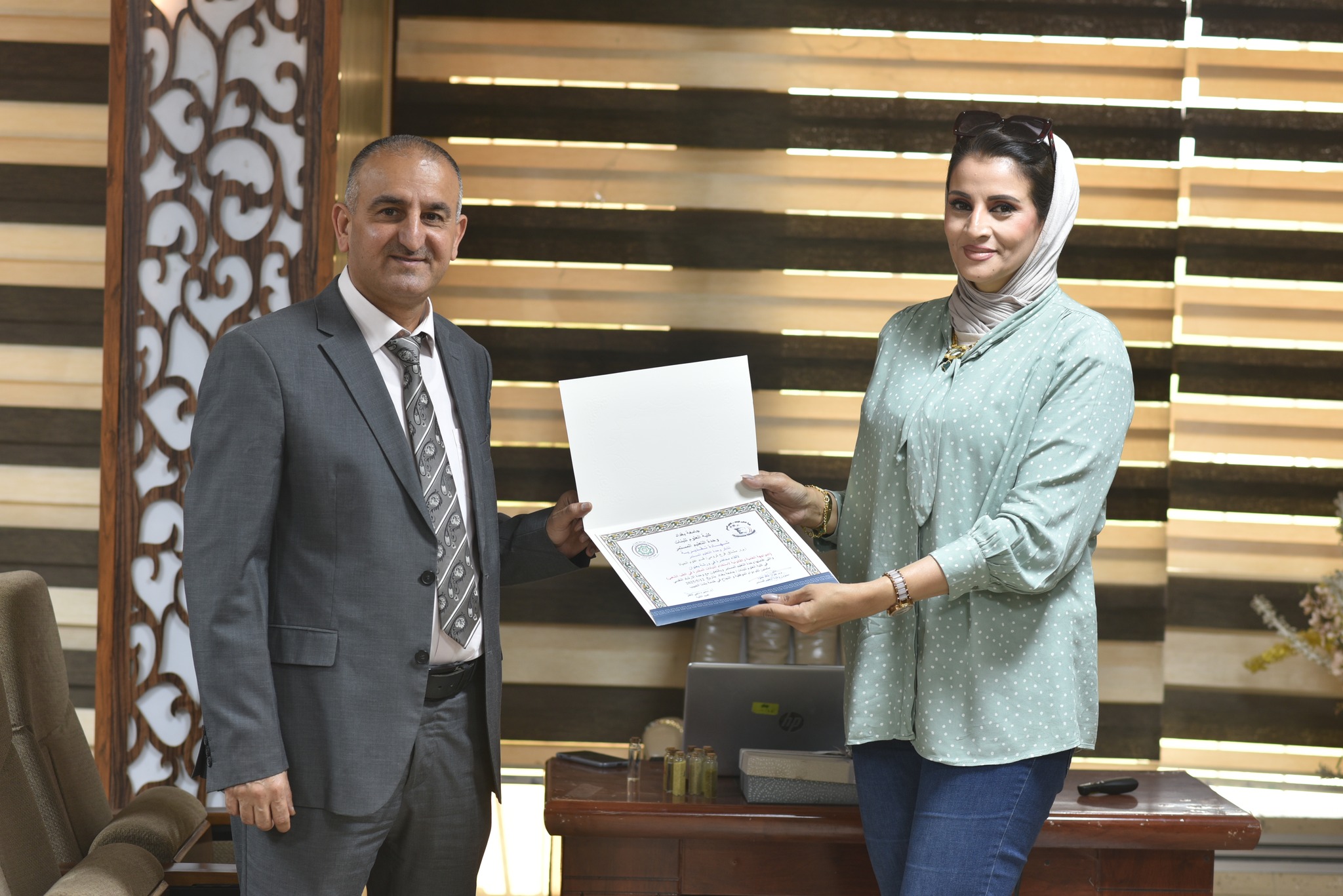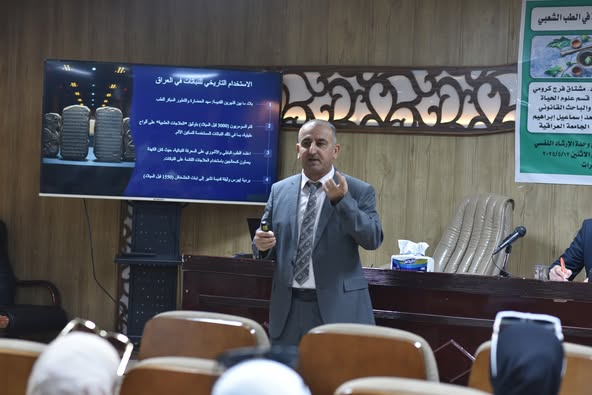Under the patronage of Prof. Dr. Sameera Naji Khdim, Dean of the College of Science for Women, the Continuing Education Unit, in collaboration with the Psychological Counseling Unit, organized a scientific workshop titled “Scientific and Legal Confrontation of the Use of Narcotic Plants in Traditional Medicine.” The workshop featured contributions from Dr. Mushtaq Faraj Karoumi and legal researcher Saad Ismail Ibrahim from the Iraqi University.
The primary objective of the workshop was to shed light on the concept of alternative medicine and the most commonly used herbs in this domain.
The workshop addressed two main pillars:
1-The Scientific Dimension:
This segment focused on identifying types of narcotic plants used in traditional medicine without medical supervision and the potential negative impacts of their use on public health. Examples included:
– Cannabis, which contains the psychoactive compound tetrahydrocannabinol (THC);
– Khat, known for stimulating the central nervous system, leading to temporary alertness followed by severe fatigue;
– Opium, derived from the poppy plant, containing highly addictive compounds;
– In addition to hashish, datura, and baladhur, all of which are sometimes used non-medically in certain folk practices despite their serious physical and psychological risks.
The discussion emphasized the critical distinction between the scientifically approved medical uses of some of these plants under strict medical supervision and their unregulated or superstitious promotion by some herbalists.
2- The Legal Dimension:
Presented by legal expert Saad Ismail Ibrahim, this section explored the legal implications surrounding the circulation and use of such plants. He reviewed Iraqi and international laws that criminalize the illegal trade, consumption, or cultivation of narcotic plants. The presentation highlighted a concerning laxity in distinguishing between beneficial herbs and those with psychoactive effects, which can lead to legal ambiguities exploited by some for unlawful promotion.
The expert stressed the importance of raising public awareness regarding legal provisions and penalties for violations, as well as the need to regulate the profession of herbal medicine and define permissible substances clearly.
As part of the workshop’s practical component, a selection of commonly used household herbs with scientifically proven health benefits was showcased. These herbs are considered safe when used properly to alleviate common symptoms. Among the highlighted herbs were:
– Anise, known for calming the digestive system and relieving cramps;
– Chamomile, used as an anti-inflammatory and nerve relaxant;
– Cumin, which aids in digestion;
– Damask rose, valued for its soothing effects on the nervous system.
The workshop clarified proper and safe methods for using these herbs, avoiding exaggeration or unscientific claims.
In conclusion, the workshop emphasized the importance of maintaining a balance between preserving traditional medicine as part of cultural heritage and the necessity of relying on scientific research and legal frameworks to regulate the use of plants and their impact on public health. It also underlined the need to raise community awareness about the rational use of herbs, promoting a deeper understanding of the relationship between nature and human health within the framework of sustainability and social responsibility.
This workshop was part of the College’s scientific initiatives aimed at enhancing community awareness of the health and legal risks associated with the use of psychoactive plants.It also sought to integrate scientific knowledge with legal perspectives regarding the use of medicinal and narcotic herbs, aligning with the United Nations Sustainable Development Goals, particularly Goal 3: Good Health and Well-being.

